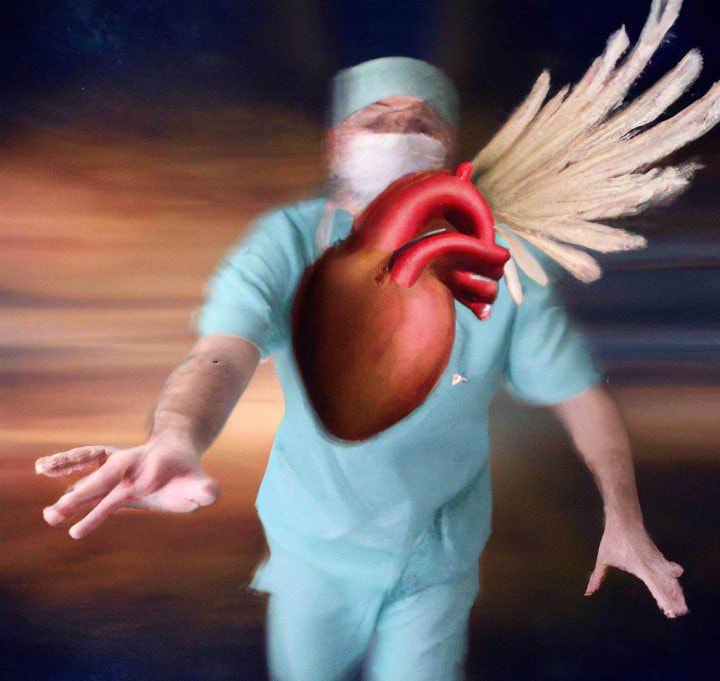|
Dr Christiaan Barnard, the pioneer in human-to-human transplant, had visited India when I was in high school. Not sure if that was the trigger, but around the same time I developed this great interest in medicine, specifically in cardiac medicine.
Even browsed through all of Gray’s Anatomy when I was supposed to be reading Economics much to the amusement of an indulgent family doctor. As a bonus, I had this fascination for science fiction. So, save little details like studying medicine and learning surgery, my heart was set, well, on heart. Thank God, that didn't happen! They say heart surgeons are dying out. I thought only writers were at risk. Looks like technology is set to bypass my dream surgeons, too. According to The Economist, until “the late 19th century, surgeons were convinced that the organ was so delicate that even touching it would cause death.” When cardiac surgery emerged around the 1950s, “it quickly became one of the most prestigious and well-rewarded branches of medicine, dominated by vaunting men who gloried in their power to save those doomed to die.” In 2008-09, heart operations in Britain were at an all-time high of over 41,000 only to fall to 31,000 10 years later. As against this, from 10,000 in 1991, the implantation of stents increased ten times to over 100,000 by 2020. Reportedly, there is ever less work to go around the estimated 250-plus consultant surgeons in Britain, a number that has remained "largely static." What is happening? Is a ChatGPT cousin taking over heart surgery? When Simon Akam, the writer of the article asked Dr Dincer Aktuerk, a consultant surgeon at St. Bartholomew’s about the future of the profession, the answer was arresting: “I don’t think that the conventional cardiac surgeon, as we know it, will exist in a few years’ time.” Dr Richard Galloway, a surgical trainee has chosen to focus on orthopaedics. The rationale is more head and less heart. “Everyone’s going to need knee replacements,” Galloway told the writer. “You’re in good business there.” Back in 1976, while in India, Dr Christiaan Barnard had told a journalist: “You can't be a heart surgeon and be tense.” Tense they are today, going by what Simon Akam has revealed. I wonder, the next time I meet my writer friends over pints of a morale booster, and we again aver that no technology can ever replace us, will I also run into some cardiac surgeons asserting that no wire can slip through and cut the scalpel out?
2 Comments
7/2/2023 06:50:55 pm
I do not think it is all black and white. Yes, the proverbial "General Surgeon" died long back as sub specialities came up. Or he was left with the few crumbs from the dustbin like abscess drainage, sebaceous cyst removal.. if he got to it in any case. Open surgery has reduced dramatically with endoscopic and laparoscopic approaches. And now,,,robotics. The problem is that current and future students will have no or negligible experience in open surgery. And when they have to open, they will flounder as they are accustomed to see the operative field magnified! It is something like children will forget how to write thanks to the computer. And forget about learning spellings. Frightening? You bet. Thank God, I am retired
Reply
Leave a Reply. |
AuthorVijayakumar Kotteri Categories
All
Archives
July 2024
|


 RSS Feed
RSS Feed

